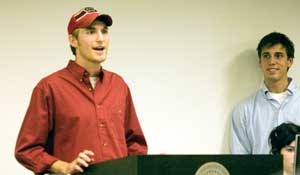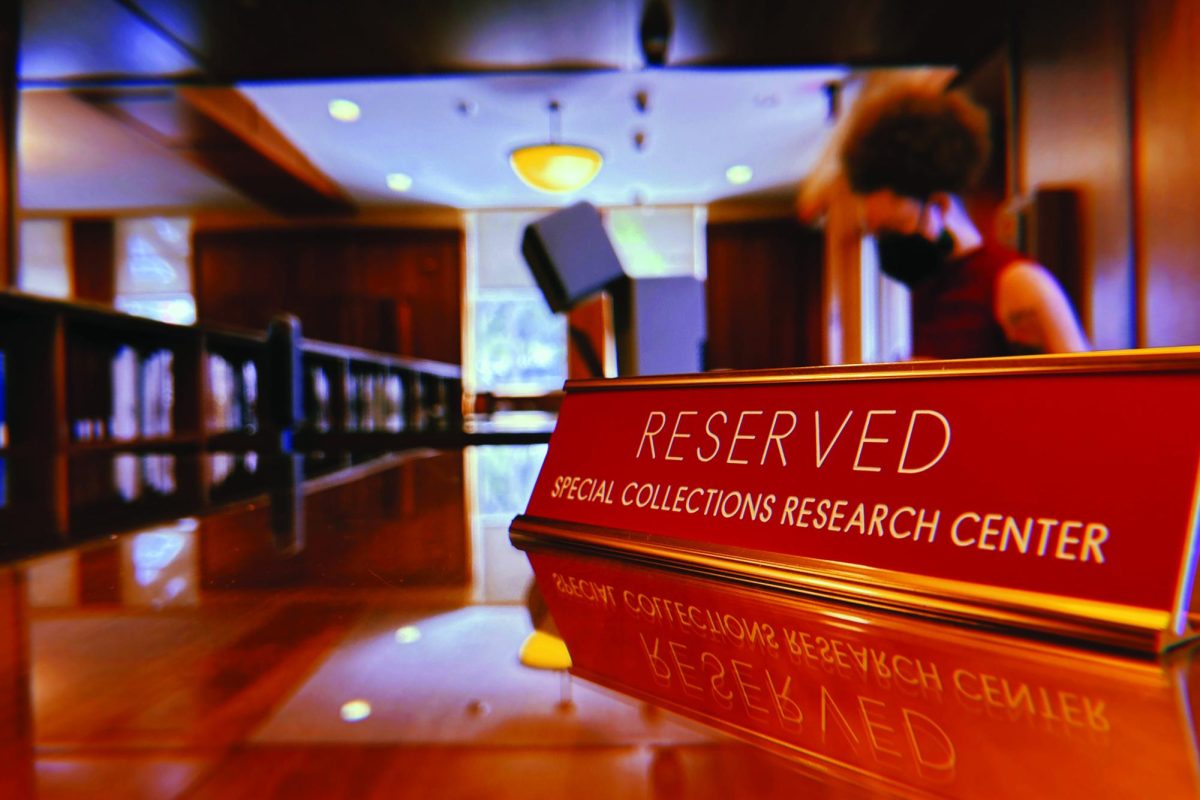The 86th Student Senate meeting, and the first meeting for the newly elected senators and executive officials, took place Wednesday night.
Student Senate President Zach Adams began the meeting by congratulating those elected and mentioning his five visionary goals: innovation, courage, commitment, growth and fun.
“When you have these new ideas and you think they’ll make a difference for the students you represent, I encourage you to bring these new ideas to the senate,” Adams said.
Adams stressed the importance of the senators focusing on their duties, values and commitments as senators. He said there will be disagreements but to “take everything with a grain of salt.”
“We’re not trying to change the world, but we can make a difference if we stay focused on our goals,” Adams said.
After Kevin Hassell, chair of the Elections Commission, did roll call, Adams led the Senatorial Oath of Office and then began to discuss the approval of appointments. T. Greg Doucette was withdrawn from the list as nominee for graduate senator because Adams had received many calls about how Doucette is not part of the graduate school, and Adams said he did not want to cause problems early on.
Senator James Hankins was appointed to fill one of three Lifelong Education seats and the senators approved him.
“Senate is my passion. This is what I like to do,” Hankins said.
Senator James Kling was appointed as senior CHASS senator after being next in line and was therefore automatically appointed. The senators also approved his appointment, and both Kling and Hankins took their oath of office together. Kling felt that his being a non-traditional student and his previous experience and familiarity with policies made him a good candidate for the position.
“I can fulfill this office pretty faithfully,” Kling said.
Adams then began the election of senate officers by giving descriptions of the positions. Senators Kling and Hankins were nominated for president pro tempore, where Senator Hankins gained the position.
Nominees for secretary were Kate Sutton and Jessica Chaplin. Both candidates discussed their previous leadership positions and strength in organization. Kate Sutton won the nomination.
The debate for sergeant-at-arms took the longest because of the position’s duty to bring snacks and refreshments to every other meeting. Nominees were Al McArthur, Matt Cunningham and Carl Hughes, who all tried to incorporate humor in their debate.
“I’m a big guy. I’m loud. I know you’re going to be listening to me,” Hughes said.
Hughes won the election by one vote.
The final position was legislative secretary, where James Kling was nominated and elected for the position.
After Adams conducted the elections, Student Senate adviser and guest speaker Tierza Watts discussed her role and laid out expectations for the senators, which included meeting constituents through events like college council meetings.
“You’re worthless if you don’t know what the students in your college think,” Watts said.
She also said conducting research and asking questions before writing bills, taking leadership training and bettering the relationship with administration fell under her expectations.
“Just because my position falls under administration does not mean I’m the damn devil,” Watts said.
Student body officers then gave remarks about their terms by explaining their goals. Student Body Chief Justice-elect, Lock Whiteside, discussed goals including terminating Academic Integrity week and replacing it with a semester-long forum. He also said he wanted to establish the policy of “students innocent until proven guilty.”
Student Body Treasurer Adam Compton discussed opening applications for positions in the treasury, as well as interest in a Student Government T-shirt.
Finally, Will Quick, student body president-elect, described his interest in closing the gap between the executive branch and senate, saying he will appoint people to positions after he is officially sworn in Thursday.
“If you have any questions about the senate or just want to chat, please feel free to come to me,” Quick said.
A senate orientation took place at the end of the meeting, where senators from the same colleges got into caucuses to meet and discuss issues with one another.




